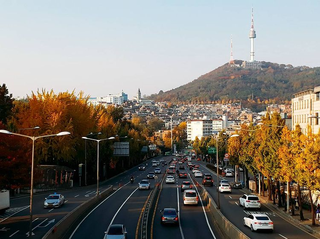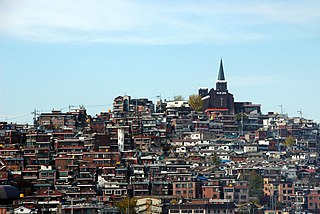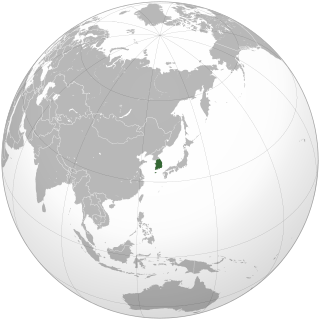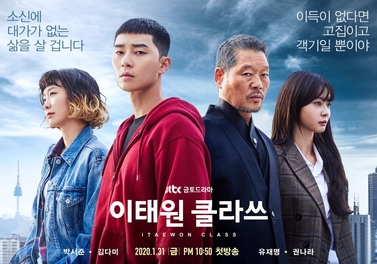Related Research Articles

A gay village, also known as a gayborhood, is a geographical area with generally recognized boundaries that is inhabited or frequented by many lesbian, gay, bisexual, transgender, and queer (LGBT) people. Gay villages often contain a number of gay-oriented establishments, such as gay bars and pubs, nightclubs, bathhouses, restaurants, boutiques, and bookstores.

The LGBT community is a loosely defined grouping of lesbian, gay, bisexual, and transgender individuals united by a common culture and social movements. These communities generally celebrate pride, diversity, individuality, and sexuality. LGBT activists and sociologists see LGBT community-building as a counterweight to heterosexism, homophobia, biphobia, transphobia, sexualism, and conformist pressures that exist in the larger society. The term pride or sometimes gay pride expresses the LGBT community's identity and collective strength; pride parades provide both a prime example of the use and a demonstration of the general meaning of the term. The LGBT community is diverse in political affiliation. Not all people who are lesbian, gay, bisexual, or transgender consider themselves part of the LGBT community.

A gay bar is a drinking establishment that caters to an exclusively or predominantly lesbian, gay, bisexual, transgender or queer (LGBTQ+) clientele; the term gay is used as a broadly inclusive concept for LGBTQ+ communities.

Yongsan District is one of the 25 districts of Seoul, South Korea.

LGBT culture is a culture shared by lesbian, gay, bisexual, transgender, and queer individuals. It is sometimes referred to as queer culture, while the term gay culture may be used to mean "LGBT culture" or to refer specifically to homosexual culture.

The Seoul Central Mosque is a mosque opened in 1976 in Itaewon, Seoul, South Korea. It is located in Hannam-dong, Yongsan District. It holds lectures in English, Arabic, and Korean. Friday prayers regularly attract between four hundred and five hundred worshipers in the afternoon, though regular attendance has sometimes been known to climb as high as eight hundred people.
Itaewon is multi-cultural commercial area located in Seoul, South Korea. it is one of the most popular neighborhoods in Seoul, known for its nightlife and trendy restaurants.

Haebangchon, sometimes abbreviated as HBC, is a district of Yongsan-gu, in Seoul, South Korea. It is one of the oldest neighborhoods in central Seoul. It is also known as the neighborhood at the foot of Namsan (남산자락). The neighborhood's close proximity to Itaewon and the Yongsan Garrison US Army facility has made the area popular with expatriates and military staff. In recent years, the area has become a haven for people from a variety of English-speaking nations. The neighborhood is home to Korean residents, as well as Americans, Canadians, Filipinos, Australians, New Zealanders, Britons, Nigerians, Russians and Ecuadorians who have found their home in the "Freedom Village". Many businesses in HBC are foreign-owned and offer a distinct flavor not found elsewhere in Seoul.

Lesbian, gay, bisexual, and transgender (LGBT) people in South Korea face legal challenges and discrimination not experienced by non-LGBT individuals. While male and female same-sex sexual activity is legal in South Korea, marriage or other forms of legal partnership are not available to same-sex couples. South Korean national law does not provide any anti-discrimination protections for LGBT people, nor does it prohibit hate crimes based on sexual orientation and gender identity.
Jeong-dong is a legal dong, or neighbourhood of the Jung-gu district in Seoul, South Korea and governed by its administrative dong, Sogong-dong.

The Case of Itaewon Homicide is a 2009 South Korean film, based on the true story of the Itaewon murder case, which shocked Korea when Hongik college student Cho Jung-Pil was found dead at an Itaewon Burger King in 1997. The murder was investigated in 1997 by CID Agents J. Choi, D. Zeliff, T. Barnes and B. Crow. Two troubled U.S. teenagers—Arthur Patterson and Edward Lee—became suspects and were convicted. Patterson was released a year later in a special amnesty and Lee was freed a year after that due to lack of evidence. The case never resulted in further convictions. It stars Jang Keun-suk as Arthur Patterson and Jung Jin-young as his lawyer. Song Joong-ki played the victim. The film had 531,068 admissions in South Korea nationwide.
The modern South Korean LGBT rights movement arose in the 1990s, with several small organizations seeking to combat sexual orientation and gender identity discrimination.

A lesbian bar is a drinking establishment that caters exclusively or predominantly to lesbian women. While often conflated, the lesbian bar has a history distinct from that of the gay bar.
South Korean military laws and procedures discriminate against sexual minorities, or lesbian, gay, bisexual, transgender, and queer (LGBTQ+) individuals, who serve in the military. At the time of enlistment, recruits are categorized based on their physical and mental health. Sexual minorities can be marked as having a “mental handicap” or “personality disorder,” which determines their status and duties as personnel. They can also be institutionalized in a mental facility or be dishonorably discharged. Military personnel have reported experiencing harassment, violence, and forcible revealing of their sexual orientation and/or gender identity.
Chingusai is a South Korean gay men's human rights group founded in February 1994. It originated from Chodonghwe, the first organization that advocated for the human rights of the Korean LGBTQ+ community. Chingusai's main focus is to raise awareness on the importance of LGBTQ+ human rights and fight against the prejudices on sexual minorities in South Korea through social activism.

Itaewon Class is a 2020 South Korean television series starring Park Seo-joon, Kim Da-mi, Yoo Jae-myung, and Kwon Nara. Based on the webtoon of the same name, it is the first series to be produced by the film distribution company Showbox. It aired on JTBC in Korea from January 31 to March 21, 2020, and is streaming worldwide on Netflix. The series won Best Drama Series at the 25th Asian Television Awards.

The COVID-19 pandemic in South Korea is part of the worldwide pandemic of coronavirus disease 2019 caused by severe acute respiratory syndrome coronavirus 2. The first case in South Korea was announced on 20 January 2020. The number of confirmed cases increased on 19 February by 20, and on 20 February by 58 or 70, giving a total of 346 confirmed cases on 21 February 2020, according to the Korea Disease Control and Prevention Agency (KDCA), with the sudden jump mostly attributed to "Patient 31" who participated in a gathering at a Shincheonji Church of Jesus the Temple of the Tabernacle of the Testimony church in Daegu.

The ongoing COVID-19 pandemic has highlighted inequities experienced by marginalized populations, and has had a significant impact on the LGBT community. Gay pride events were cancelled or postponed worldwide. More than 220 gay pride celebrations around the world were canceled or postponed in 2020, and in response a Global Pride event was hosted online. LGBTQ+ people also tend to be more likely to have pre-existing health conditions, such as asthma, HIV/AIDS, cancer, or obesity, that would worsen their chances of survival if they became infected with COVID-19. They are also more likely to smoke.
Transgender is a term describing someone with a gender identity inconsistent with that which was assigned to them at birth. In South Korea, transgender communities exist and obtaining gender affirmation surgery is possible, but there are many barriers for transgender people in the country. The former head of the LGBT Human Rights of Korea once stated that "Of all sexual minorities, transgender is the lowest class. They are often abandoned by their families and most of them drop out of school because of bullying. The inconsistency between their appearance and their citizen identification numbers often makes it hard for them to land decent jobs."

On the night of 29 October 2022, a crowd crush occurred during Halloween festivities in the Itaewon neighborhood of Seoul, South Korea. At least 159 people were killed and 196 others were injured. The victims were mostly young adults; 27 of the victims were foreign nationals.
References
- ↑ "South Korea bar district offers a safe haven for gay servicemembers". Stars and Stripes . Retrieved 2019-06-12.
- ↑ "The best gay bars in Seoul". Time Out Seoul. Retrieved 2019-06-12.
- ↑ "Sin City Seoul: Welcome to the New Side of South Korea". Outpost Magazine . 12 January 2018. Retrieved 2019-06-12.
- 1 2 3 Lee, Eun Young (2016-04-02). "Looking Forward: Decentering and Reorienting Communication Studies in the Spatial Turn". Women's Studies in Communication. 39 (2): 132–136. doi:10.1080/07491409.2016.1176811. ISSN 0749-1409. S2CID 148374514.
- 1 2 3 Kim, Ji Youn (1 July 2016). "Cultural entrepreneurs and urban regeneration in Itaewon, Seoul". Cities. 56: 132–140. doi:10.1016/j.cities.2015.11.021. ISSN 0264-2751.
- ↑ Zatko, Martin (1 June 2011). The Rough Guide to Seoul. Rough Guides UK. p. 88. ISBN 978-1-4053-8101-7.
- 1 2 3 Young, Eun Young (2015). The Rhetorical Landscape of Itaewon: Negotiating New Transcultural Identities in South Korea.